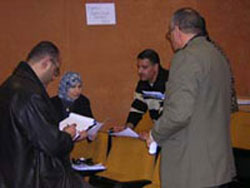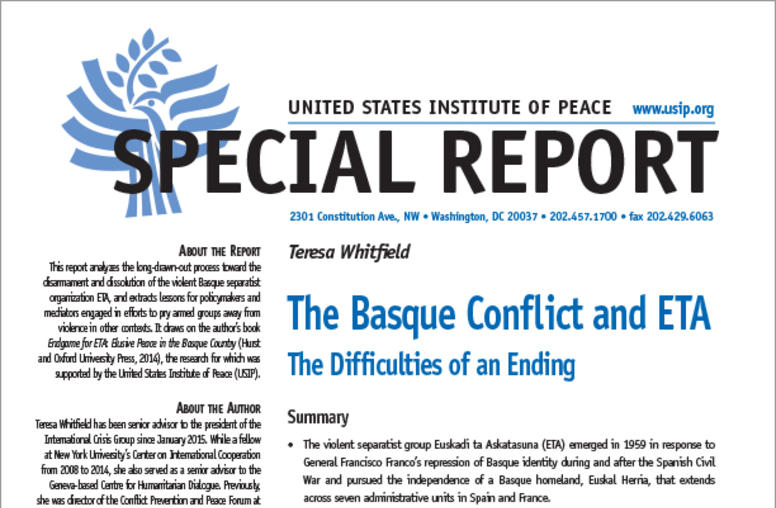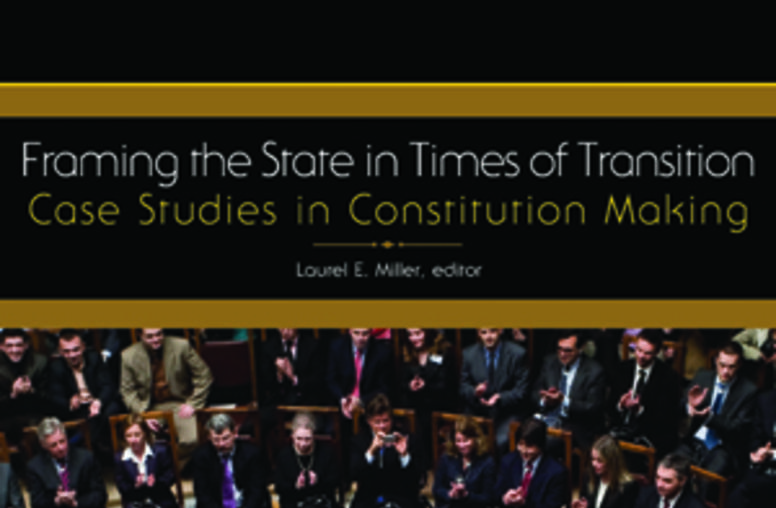Ted Feifer and Nina Sughrue of the Professional Training Program conducted a three-day seminar for twenty-nine Palestinians from the West Bank in Madrid, Spain. The Institute´s trainers worked with Helsinki Espana and the Middle East Children´s Association to identify a young, vibrant group of present and future leaders who are working towards a peaceful and stable Palestine.
Ted Feifer and Nina Sughrue of the Professional Training Program conducted a three-day seminar for twenty-nine Palestinians from the West Bank in Madrid, Spain. The Institute's trainers worked with Helsinki Espana and the Middle East Children's Association to identify a young, vibrant group of present and future leaders who are working towards a peaceful and stable Palestine. The aim of the program was to build Palestinian civil society by developing participants' skills in negotiation, conflict analysis, cross-cultural communication and mediation through exercises and simulations. Through facilitated discussions and exercises, participants practiced and strengthened key conflict resolution tools.
The participants represented a cross-section of Palestine: male and female, secular and religious, and geographically diverse. Participants came from Jenin, Nablus, several refugee camps, Jerusalem, Bethlehem and Hebron. Arabic interpretation was provided to allow non-English speakers to participate.
Jerusalem, Bethlehem and Hebron. Arabic interpretation was provided to allow non-English speakers to participate.
The participants were professionally diverse as well. The group comprised refugee camp youth coordinators, accountants, nurses, civil society professionals, teachers, and government officials. Throughout the seminar, participants emphasized that the skills and concepts they were learning were crucial for their effectiveness in their professional and personal life. As one participant noted upon his return to Palestine, "I commend your institute.....It was useful, creative, and an interesting course."

